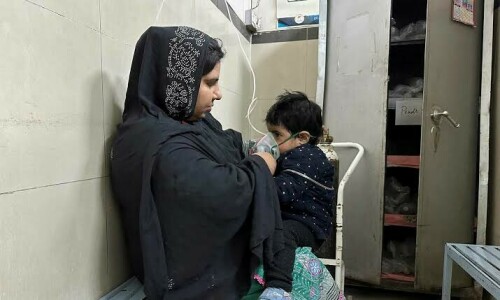LAHORE: The first ever study -- Global Landscape Study on Digitising P2G Payments -- to comprehensively examine the opportunities and challenges associated with digitizing person-to-government (P2G) payments was launched on Thursday.
The study was commissioned by Karandaaz Pakistan with financial support from the Bill and Melinda Gates Foundation and the Department for International Development (UKAid).
The Consultative Group to Assist the Poor (CGAP) provided additional funding and technical expertise. Dalberg Global Development advisers (Dalberg) authored the report, said a news release.
It will make revenue collection more efficient, responsive
As the name suggests, P2G payments include mandatory payments like taxes, bills, fines, etc, payments for government services like passport fees, and co-payments for social benefits like pensions.
With P2G payments estimated at $8tn globally, and $375bn in low- and lower-middle-income countries, there is great value in digitizing payments for governments, companies, and consumers.
Based on a global scan of 61 initiatives, and in-depth assessment of nine distinct P2G initiatives across seven countries — Rwanda, the Philippines, India, Tanzania, Ghana, Kenya, and Pakistan — the report makes a compelling case for digitization.
The report emphasizes the need for country-specific digitization strategies based on readiness levels in four areas — infrastructure, regulatory environment, customer readiness, and stakeholder buy-in.
It also provides rich and diverse examples of use-cases and digitization approaches and key recommendations for governments, businesses, and consumers, encouraging a systematic approach to digitization.
The report explores impact of digitization of P2G payments on efforts for financial inclusion. It also mulls over what does it take to set up efficient, sustainable, and inclusive digital P2G payment systems?
“We are confident that this report will encourage Pakistani stakeholders to introduce digital P2G initiatives that will not only make revenue collection for government more efficient and responsive to the needs of its citizenry, but also push the long-term adoption of digital payments among the unbanked and under-banked,” the release said quoting its authors.
Published in Dawn, October 7th, 2016











































Dear visitor, the comments section is undergoing an overhaul and will return soon.